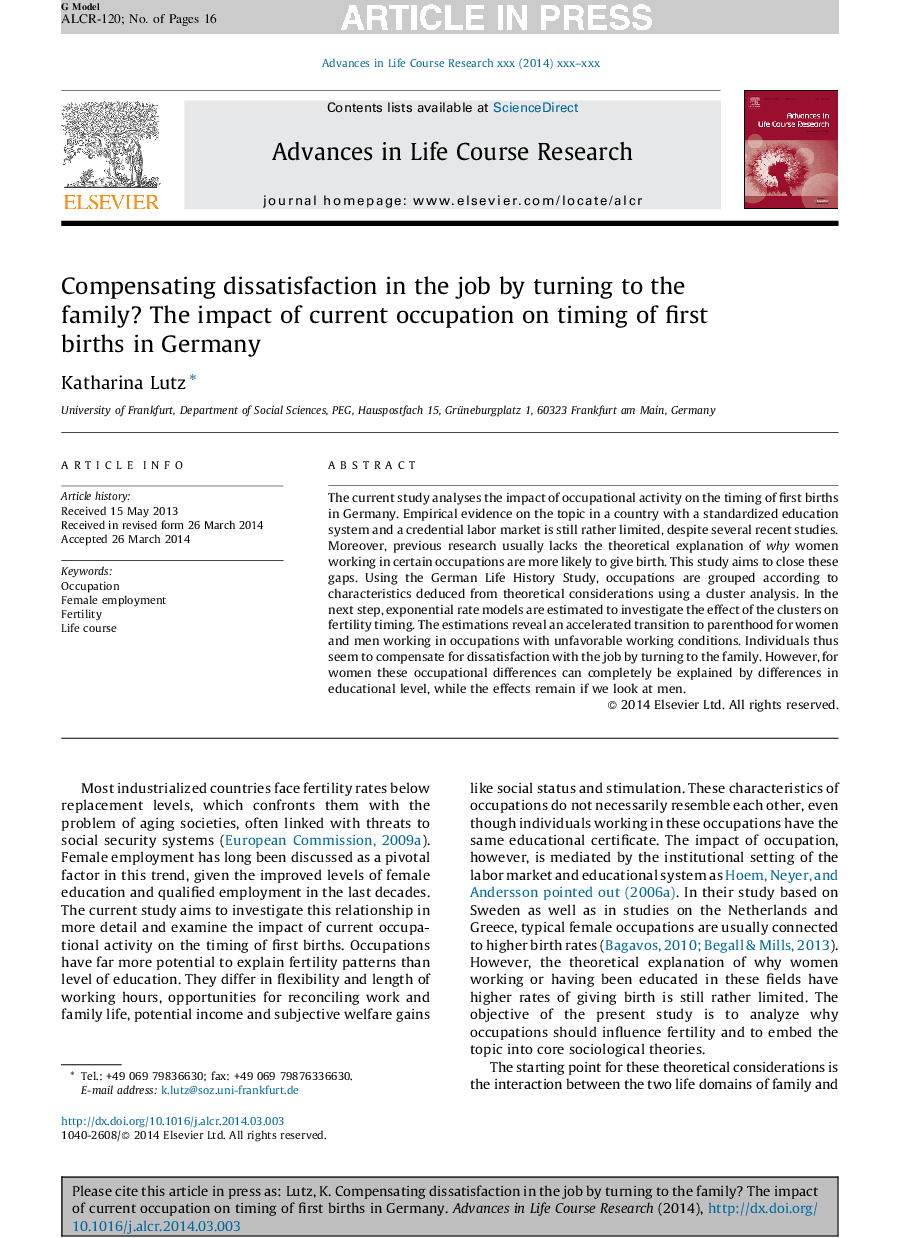| Article ID | Journal | Published Year | Pages | File Type |
|---|---|---|---|---|
| 6785046 | Advances in Life Course Research | 2014 | 16 Pages |
Abstract
The current study analyses the impact of occupational activity on the timing of first births in Germany. Empirical evidence on the topic in a country with a standardized education system and a credential labor market is still rather limited, despite several recent studies. Moreover, previous research usually lacks the theoretical explanation of why women working in certain occupations are more likely to give birth. This study aims to close these gaps. Using the German Life History Study, occupations are grouped according to characteristics deduced from theoretical considerations using a cluster analysis. In the next step, exponential rate models are estimated to investigate the effect of the clusters on fertility timing. The estimations reveal an accelerated transition to parenthood for women and men working in occupations with unfavorable working conditions. Individuals thus seem to compensate for dissatisfaction with the job by turning to the family. However, for women these occupational differences can completely be explained by differences in educational level, while the effects remain if we look at men.
Related Topics
Physical Sciences and Engineering
Mathematics
Statistics and Probability
Authors
Katharina Lutz,
